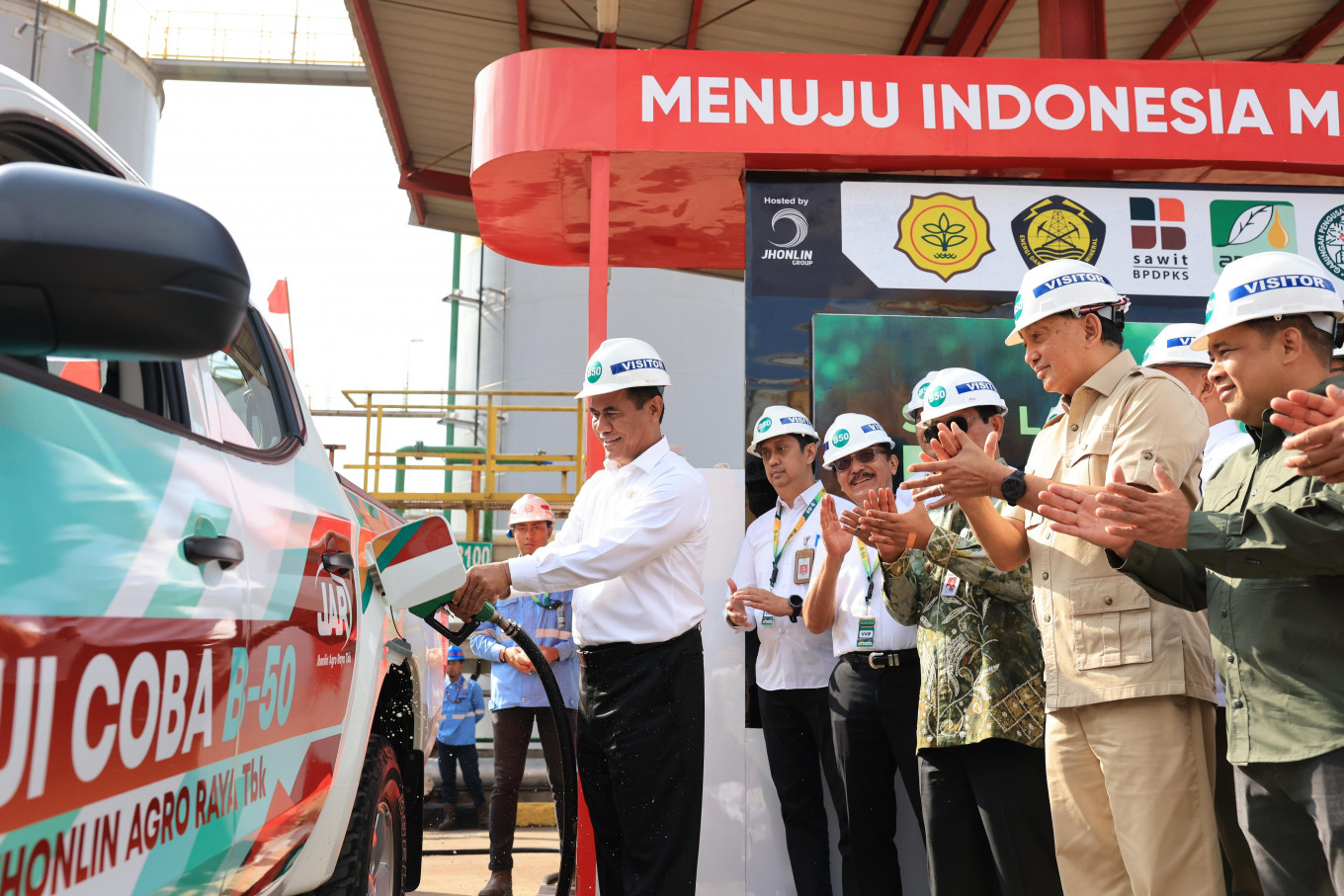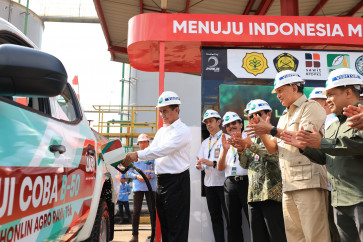Popular Reads
Top Results
Can't find what you're looking for?
View all search resultsPopular Reads
Top Results
Can't find what you're looking for?
View all search resultsWhy Indonesia’s clean energy still feeds old inequalities
What began as an inclusive experiment in rural energy has hardened into a top-down industrial regime, where benefits flow upward and accountability flows nowhere.
Change text size
Gift Premium Articles
to Anyone
I
ndonesia’s biodiesel program is widely celebrated as a national success story, a clean-energy solution built on local resources and financed by our own palm-oil industry.
The B35 mandate, which mixes biodiesel into regular diesel, has become a symbol of energy independence. Few developing countries can claim such scale or self-reliance.
The program’s financial backbone, the Palm Oil Fund (BPDPKS), collects export levies from palm-oil companies and redistributes them as subsidies to biodiesel producers.
According to Reuters, more than Rp 10 trillion (US$630 million) from the export levies was allocated for biodiesel subsidies this year. Behind the pride and production numbers lies a deeper question: what kind of transition have we actually built?
Stability has been achieved, yes, but often at the expense of adaptability, fairness and environmental integrity. Indonesia’s green energy still runs, in many ways, on the same old economic and political rules.
When biofuels first appeared in Indonesia’s national plans in the mid-2000s, they carried a hopeful promise. The government, supported by international donors, promoted jatropha, cassava and other local crops as “pro-poor” energy sources. The idea was simple: rural communities could grow biofuel feedstocks, earn extra income and reduce dependence on imported oil.
But by the early 2010s, that plural vision had faded. Palm oil; already a dominant export commodity, quickly became the most practical and politically powerful option. By 2023, oil palm plantations covered more than 16 million hectares, according to the Agriculture Ministry.



















